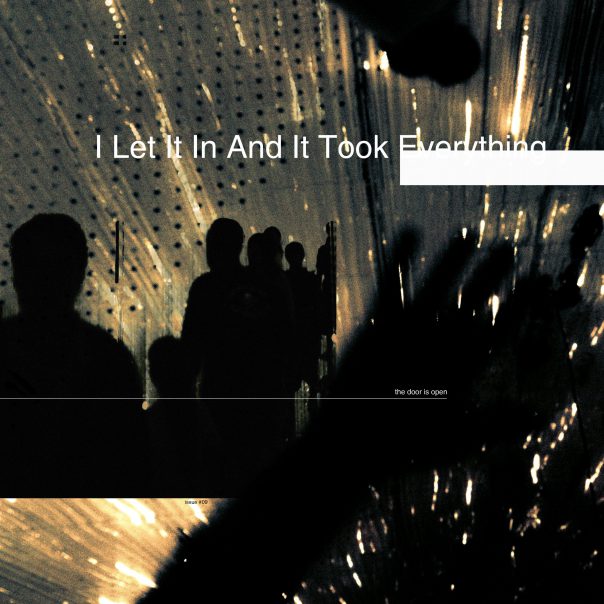ALBUM REVIEW: Loathe realizes a grand metalcore vision on sophomore album
Having a reputation as “the Deftones of metalcore” is hardly a bad thing, but there’s far more to U.K. band Loathe. These guys run the emotional gamut, from sensual melodies to enveloping soundscapes, chaotic riffage and ferocious growls. It opens a lot of opportunities for conceptual growth, which I Let It In And It Took Everything capitalizes on to a terrific effect. The album diversifies Loathe’s sound in a compelling exploration of cognitive dissonance, with panoramic scope and a thoughtful backdrop.
I Let It In and It Took Everything
Loathe
Sharptone Records, Feb. 7
The frenzied aggression that marked Loathe’s 2017 debut LP, The Cold Song, reprises its role in “Aggressive Evolution” and “New Faces In The Dark.” The production’s abject noisiness imparts palpable viscera to blitz-speed musicality, but the band’s progression becomes crystal clear once the former song’s chorus hits.
Melody isn’t unheard of in Loathe’s sound, but this time there’s an inexplicable chemistry between Kadeem France’s Emmure-like growls and his ghostly singing.
This musical synergy explains why the decimating, detuned riffs of “New Faces In The Dark” can integrate ominous, spectral melodies. The murky mix maintains an atmospheric through line at its most serene and caustic extremes. The softer end of the spectrum takes nods toward Radiohead and The 1975, to which “Two-Way Mirror” gives credence. Easily the most accessible tune the band has written, its placid melodies give the song an almost-radio-friendly song structure—even with the extended range guitars and aggressive rhythm section beefing things up.
These sleepier passages give Loathe a chance to ruminate on its thematic interests. “Hoping to find faith/ Miming dissolving grace/ Just say ‘I know’ it’s all in our heads/ Just say ‘I know’ and I’ll stay here instead,” France sings. His words speak to the dichotomy between perceived spirituality and existential stagnation. As a whole, I Let It In and It Took Everything deals in ontological turmoil, but not in the faux-apocolyptic way of most metal and hardcore bands. “Matrix”-esque awakenings and obscure symbolism reflect in the album’s musical breadth, but the words themselves play out more like a Ridley Scott film that’s directed by David Lynch.
The strength of Loathe’s vision makes cuts like “Gored” thoughtful in their diversity. Dissonant, tension-filled guitar layers give way to bombshell chugs and Sean Radcliffe’s addictive beat. The guitar suddenly locks in with the double bass like it’s Warped Tour in 2010 again. From the battering synchronized hits and seismic, doom drones at its final portion, this song’s dynamic changes remain compellingly jarring. Loathe completely bucks the good-cop-bad-cop formula that could have resulted from increased melody. Even so, it’s the scope of ambition that really sets this album apart.
Where most metal album ambient intros feel like filler, “Theme” feels integral to the mood. There’s a cold sci-fi element to it, but the shimmering modulations carry noticeable emotional weight. That’s why “451 Days” carries on so well from “Two-Way Mirror” and “A Sad Cartoon (Reprise)” lives up to its name. It’s not just about filling sonic space. The band uses these textured drones and field recordings as a springboard into more impactful expression.
Loathe still has no problem with getting angry when it needs to. From a foundation of propulsive punk, “Broken Vision Rhythm” brings some infectious riffing and rock-solid breakdowns. The disoriented syncopation and frenetic anti-chords never feel disorganized. Think old Norma Jean fed through a filter of Today Is The Day and other outliers of alternative metal. The short-fused “Red Room” polarizes this stylistic cross section, jumping from ambient keyboard patches to what’s essentially the hardcore equivalent of Merzbow.
Gore-era Deftones vibes emerge from the tight three-count beat, washy synths and soothing vocal croons of “Is It Really You?” The effect is distinctly romantic, depicting two lovers leaving behind worldly plane in a blissful state: “Let’s search the sky for a while/ You and I collide like two stars for a while/ You and I.” This stands in sharp contrast to the wall of black metal hatred that begins “Heavy Is the Head That Falls with the Weight of a Thousand Thoughts.” You might think you’re listening to Deafheaven in a blender, until the militant stomp riff takes over. While not particularly technical, Loathe keeps the twists coming. Grooves never happen the same way twice, and the album’s dynamism only gets more dramatic.
The central riffage of “Screaming” and “A Sad Cartoon” actually starts out akin to ‘90s indie rock, but the nostalgic leads collide with skronky breakdowns and tasty riff-fests. You never see the shifts coming, which speaks to the versatility of bassist Feisal El-Khazragi and rhythm guitarist Connor Sweeney as they hit each sonic signatures home. Both tracks lull you into a false sense of security with heavenly sounds, making their culminating explosions extra satisfying.
Loathe’s ability to switch styles so fluidly shows the depth of the band’s songwriting. Each musician makes sure what he plays serves an emotion rather than virtuosity or melodrama. In this way, the foreboding, multifaceted title track effectively lands the last salvo of Loathe’s flawless victory of an album. It features some of the most violent passages, yet also it’s most anthemic melodies—ultimately submerging itself in a sea of spooky reverb.
I Let It In And It Took Everything is far more than a great release to start out 2020. This band is pushing the boundaries of what heavy music can be while avoiding gimmicks altogether. In terms of raw songwriting chops, daring stylistic ventures and eviscerating intensity, Loathe is at the top of the game.
Follow Max Heilman at Twitter.com/madmaxx1995 and Instagram.com/maxlikessound.

